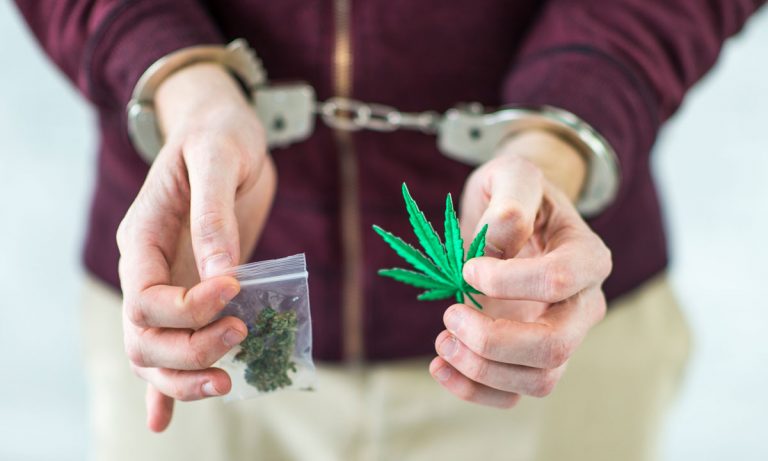The majority of Americans support decriminalizing all drugs
A new poll demonstrates shifting views on how to treat drug offenses in the country. Instead of jail time, most Americans favor recategorizing drug offenses.
In news that would’ve seemed inconceivable a decade ago, a new poll from libertarian think tank The Cato Institute found that 55% of American favor drug offenses not resulting in jail time. Instead, the majority of Americans favor “recategorizing drug offenses from felonies to civil offenses.” This would result in drug possession violations to “be treated like minor traffic violations rather than crimes.”
The news falls in line with a new trend of enforcing drug laws across the country. Last year, a Gallup poll reported that two-thirds of all Americans support legalizing marijuana. It also coincides with major American cities where cannabis has been legalized, like Seattle and San Francisco, expunging past marijuana convictions.
Unsurprisingly, the support for decriminalizing all drugs was favored more by Democrats (69%) and Independents (54%) than Republicans (40%) in the Cato Institute’s polling. To reach these conclusions, the Cato Institute surveyed more than 1,700 Americans through phone calls. Respondents were then asked whether they “favor or oppose re-categorizing drug offenses from felonies to civil offenses, meaning they would be treated like minor traffic violations rather than crimes.”

The questions comes at a time when American political leaders have reconsidered the negative impact brought by the War on Drugs, particularly on disenfranchised communities of color. Many presidential candidates for the Democratic nomination have announced they’d legalize marijuana should they be elected. Sen. Kamala Harris and former Rep. Beto O’Rourke have displayed the most aggressive marijuana reform, with O’Rourke calling for drug war reparations.
In addition, a Canadian lawmaker recently proposed legislation that would repeal federal law that prohibits the possession of illicit substances. Though Liberal MP Nathaniel Erskine-Smith’s bill has a low chance of passing, it would effectively decriminalize all drugs in the country. Erskine-Smith believes drug offenses and addiction as a public health issue, not as a crime.
